SAFY of Greenville recently hosted a graduation of nine Spanish-speaking families from the Strengthening Families Program (SFP). Neil White, who tells the stories of Children’s Trust, covered the event.
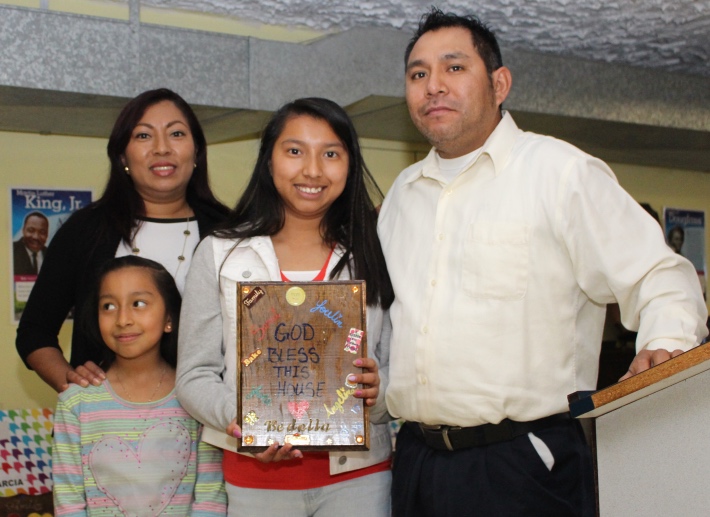
The Bedolla family displays its plaque made for the SFP graduation.
GREENVILLE – The nine Spanish-speaking families graduating from the Strengthening Families Program listened intently as Dr. Detra Jefferies addressed them at the Israel Metropolitan CME Church.
“We are doing something for you,” Jefferies said of their participation in the program, “but you do so much for us.”
A proud Jefferies was speaking as the program’s coordinator for SAFY of Greenville, which is one of 18 local partners providing SFP through a grant from Children’s Trust at 25 different locations in 21 counties from January to May. She also saluted the staff, which included four bilingual group leaders, for making the families feel at home as they attended the 14-week program.
The good feelings were mutual, as the parents and children gave heartfelt testimonials during the graduation ceremony. Many of them emotionally thanked SAFY for offering the program and the staff for the experience and the skills they will take away from it. One father stated that he may not be the best dad, but he tries to be a good dad. One mom received the final two sessions at home after giving birth to a new child.
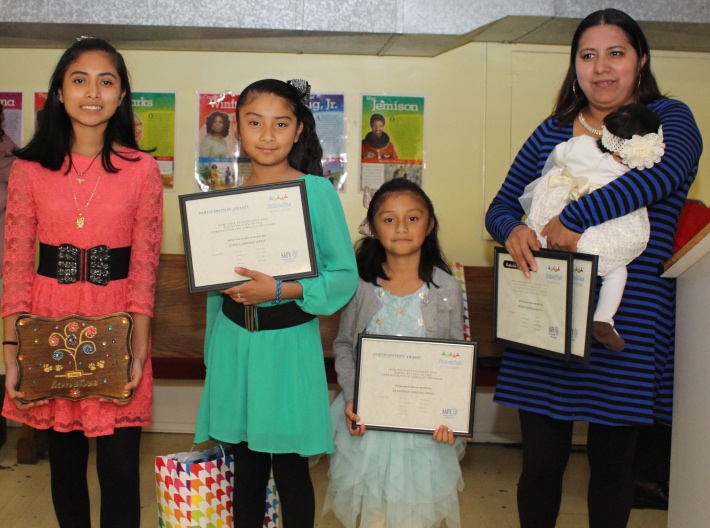
The Sanchez family receives certificates for completing the 14-week program.
SFP focuses on serving families with children ages 6 to 11 through local partners in settings that include community centers, schools, and churches. Younger siblings and teen siblings also are welcome to participate in side sessions.
The program is designed to help families develop positive discipline practices, stay resilient in tough times, reduce conflict, improve parenting skills, and assist children with social skills, relationships, and school performance. These factors play an important role in keeping families strong while protecting against potential neglect or abuse.
Hortensia Calderon Villa, who went through the program with Fermin Cantero Torres and their children, Yojan, 11, and daughter Kaily, 7, spoke of the clear benefits through group leader Maria Standard, who served as a translator.
“We’re more united as a family. My children have learned a lot and behave a lot better,” Calderon Villa said. “For me, the biggest thing is my son’s grades and behavior are a lot better in school, and that was important to me.”
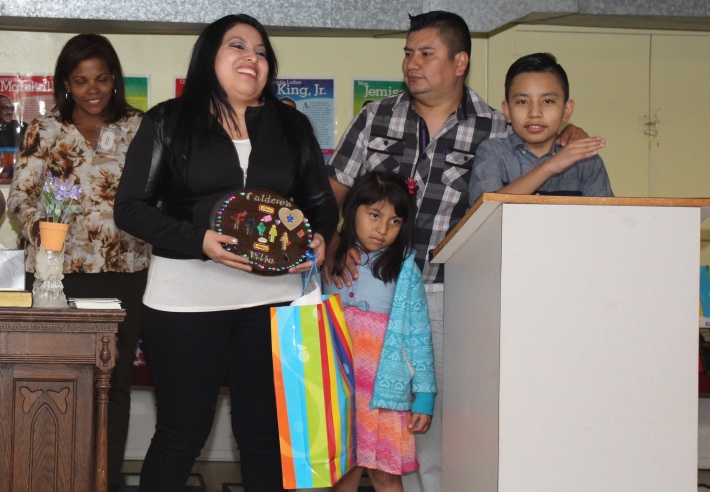
SFP bilingual group leader Milena Banquez (left) supports Hortensia Calderon Villa as family members give testimonials to the program and accept their graduation gifts.
Every graduating family made a plaque that told a personal story about what the program meant to them. Most reiterated the theme of a renewed sense of unity within their families. The weekly sessions always begin with a group family meal before the parents and children attend separate classes and then come together at the end of the evening.
This SFP expansion in South Carolina, which is the result of $9.5 million awarded to Children’s Trust over three years (2016-18) by The Duke Endowment and the S.C. Department of Social Services, has allowed a grantee like SAFY to broaden its outreach by setting up a site to reach Latino families. This is the first SFP site since the program began in South Carolina three years ago that included only Spanish-speaking families.
Lillian Garcia, the Children’s Trust SFP coordinator in the Upstate, stated the program helped the Hispanic parents in assimilating the American culture. The staff members deepened their understanding of diversity and inclusion as they served these families in the Hispanic community. Garcia, who is bilingual, also noted the near-perfect attendance by the participating families, a reflection of their commitment and appreciation.
In order to make these families feel comfortable, Jefferies went into their homes before the program began in January in an effort to build a rapport and explain expectations. Once the weekly Thursday evening sessions began, the parents and children embraced the lessons, activities and strategies that serve as guideposts to stronger family interactions.
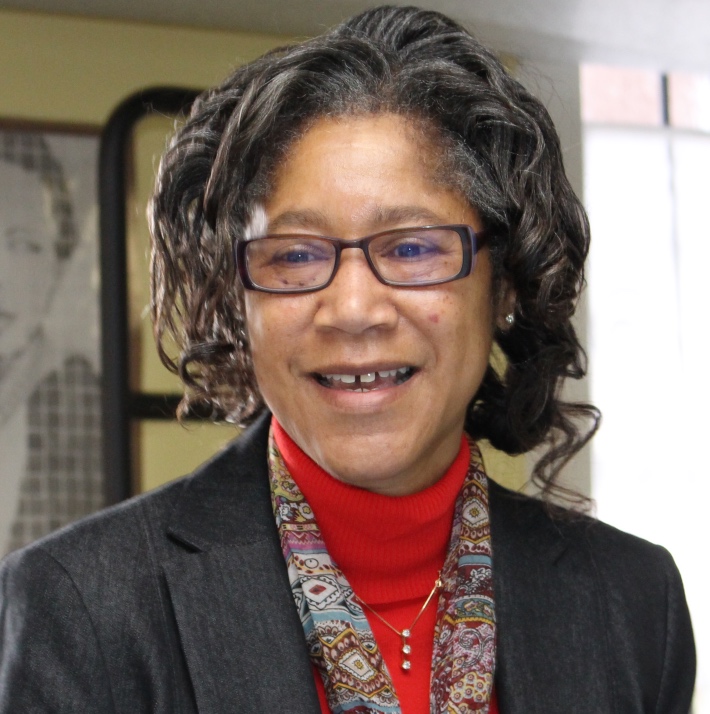
Dr. Detra Jefferies
Jefferies could see the light bulbs coming on at each session, as the parents began to do a better job of listening to their children and understanding the importance of clear, reasoned communication. She appreciated the involvement and commitment of the fathers who attended the program.
“We were building a cohesiveness not just with the mothers but with the fathers. That’s what made it special,” Jefferies said. “The other thing that happened here was we created an environment of respect and we valued them. We asked for a lot of input, and that gave them ownership in what happened for 14 weeks.”
Jose Bedolla, who went through the program with wife, Angelina, and daughters, Jocelin, 13, and Sarai, 9, especially appreciated the positive parenting techniques that he began to apply in the home.
“I was very impulsive. I couldn’t control myself,” Bedolla said. “What the program has taught me that I now have learned how to listen instead of just speaking out knowing that my words are going to cause consequences.”
The only stumbling block came early on with the menu for the meal served at the start of each session. Through consultation with the families, it was decided to serve a mix of Latino and American cuisine – not simply one or the other – to satisfy the tastes of both the parents and the children.
This resolution to the food issue provided a glimpse into what has made the program a success for English- and Spanish-speaking families across the state. Jefferies noted that while there are cultural differences, all families have similar basic needs when it comes to bonding as a unit and creating an environment of belonging and solidarity.
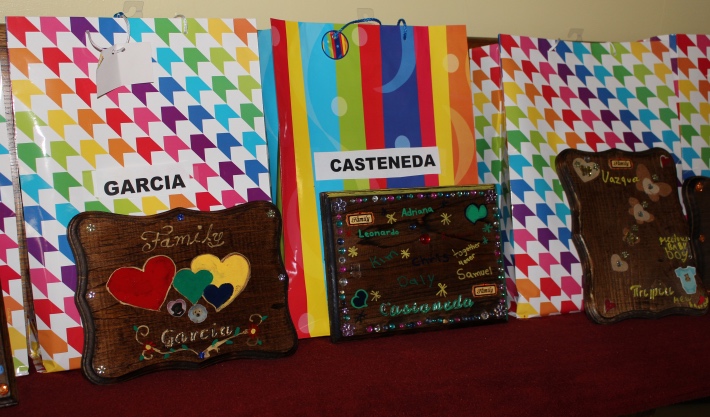
Gift bags and family plaques were family rewards for completion of the program.
The unifying aspects of the program came through during the ceremony, where Standard and fellow group leader Milena Banquez served as translators – English to Spanish as well as Spanish to English – as the families celebrated their accomplishments. Many of the parents spoke in Spanish, while many of the children spoke in English, and all of them addressed how the sessions helped them in their daily lives and connected them socially to other families.
Calderon Villa loved what her family learned, as well as making new friends, and now she can’t wait to put the skills into action.
“I’m happy and sad at the same time because the 14 weeks are over,” she said. “We plan to continue using the tools that were given here to me to better our family. I think, personally, practice is going to make it better.”
That’s exactly what Jefferies wants to hear from families.
“Most programs you do it for the parent or you do it for the child, but here you do it for the whole family,” she said. “When you can impact the whole family, you can create real change.”
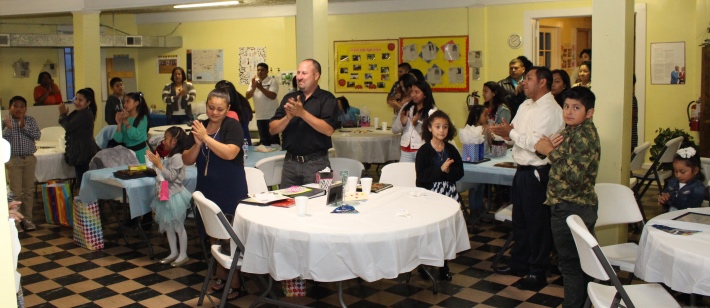
The families applaud Detra Jefferies and staff for their work at evening’s end.
Families Start at Home
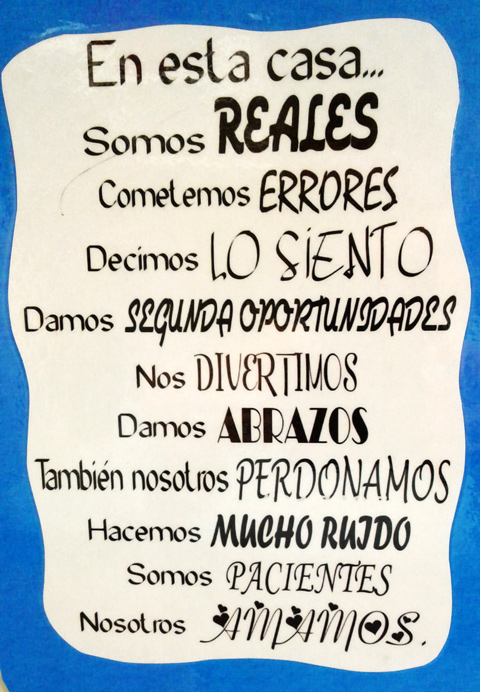
SFP Graduation family card
Three teen siblings participated as part of the SAFY Strengthening Families Program with their parents, brothers and sisters. They made a short presentation in the graduation ceremony that included the reading of a card with this sincere message.
In this house,
we are real,
we make mistakes,
we say we’re sorry,
we give second opportunities,
we have fun,
we give hugs,
we also forgive,
we make a lot of noise,
we are patient,
and we love.






